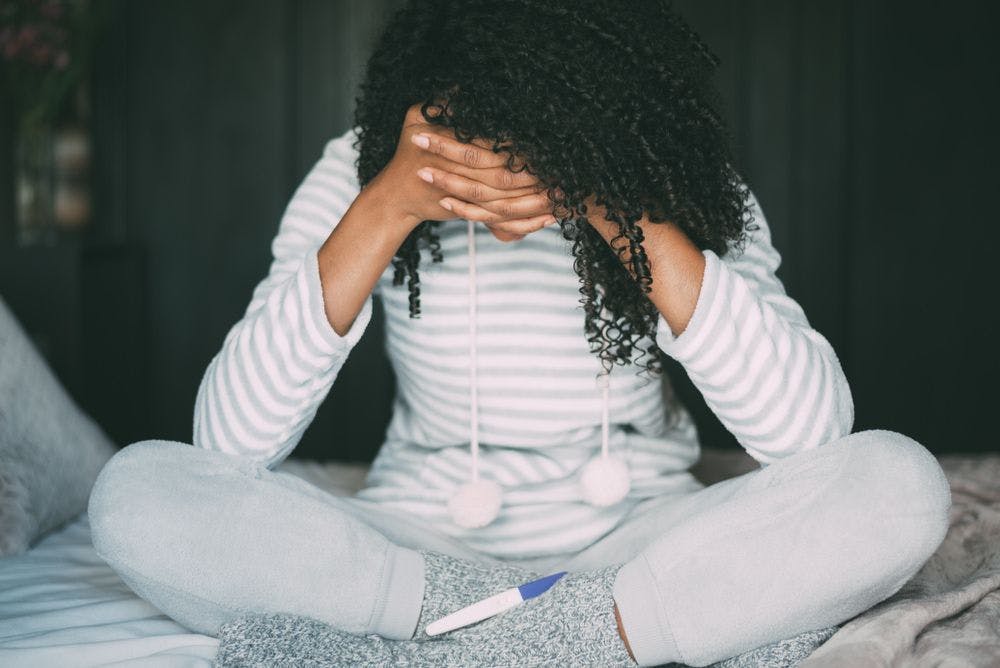Report reveals dire consequences of neglecting women’s health in lockdown
updated on Aug 21, 2020

Insight suggests that COVID-19 restrictions mean that 1.9 million fewer women were able to access contraceptive services, resulting in 1.5 million unsafe abortions and more than 3,000 maternal deaths
When lockdown restrictions came into place in March 2020, we faced a lot of uncertainty about how we would navigate vital services. But now, Marie Slopes International (MSI) – an organisation providing contraception and safe abortions in 37 countries – has revealed that a staggering number of women were unable to access sexual and reproductive services, with dire consequences.
In their report, MSI shared that 1.9 million fewer women around the globe were able to access their services between January and June, in comparison to 2019, leading them to predict this will result in 900,000 unintended pregnancies, 1.5 million unsafe abortions, and more than 3,000 maternal deaths.
Assessing why COVID-19 has impacted women in this way, MSI points to three key areas:
- Perceived redacted availability of abortion services – just 21% of UK women thought that abortion services were still available during lockdown.
- Needs for contraceptive, abortion, and domestic abuse services remained the same.
- Barriers to accessing services – women face fear and confusion about whether they were able to leave home to seek services.
Considering these points, Dr Rashmi, clinical director for Foundation for Reproductive Health Services India said:
“Women’s needs do not suddenly stop or diminish during an emergency – they become greater. And as a doctor, I have seen only too often the drastic action that women and girls take when they are unable to access contraception and safe abortion.
“This pandemic has strained healthcare services all over the world, but sexual and reproductive healthcare was already so under prioritised that once again women are bearing the brunt of this global calamity.”
Of course, as Dr Rashmi notes, the neglect of women’s health is nothing new. Research from the UK Clinical Research Collaboration previously found that less than 2.5% of publicly funded research is allocated to reproductive health – even though one in three women in the UK live with a reproductive or gynaecological health problem. Beyond that, conversations around contraception and abortion can still be very difficult, and women face social barriers to accessing services in the form of stigma and cultural taboos.

Less than 2.5% of publicly funded research is allocated to reproductive health
And there’s a real mental health cost to all of this.
“The under prioritisation of women’s reproductive healthcare risks leaving hundreds of thousands of women feeling isolated, confused and anxious – all of which have a detrimental impact on mental wellbeing,” Wendy Powell, maternal health speaker and founder of MUTU System, tells Happiful. “Reproductive health is a very delicate subject which requires professional support and close guidance – whether that be during pregnancy, childbirth or in the postpartum stage as well as education and accessibility to contraception and consultancy.
“For me it always comes back to being pro-voice and pro-choice. When either of these concepts are stifled for women, everyone loses. Not just ‘pro-choice’ in the abortion-debate sense, but in all aspects of our bodies – how they look and how we use them, the opportunities, rights, and choices we have to determine our own destiny, relationships and lives. When we lose sight of this, mental health is very serious collateral damage alongside other things.”
So what can we do to address the consequences highlighted in the MSI report?
Firstly, if you or someone you know is in need of sexual or reproductive health service, take the time to research what is available in your area. Many clinics are still operating as usual, but it’s worth calling ahead to find out about their social distancing requirements, and what you should be prepared for. Head to the NHS website to find a service in your area.
Beyond that, MSI notes that is costs around three cents a day to protect a young woman from an unintended pregnancy, which could save her life or allow her to finish education – and you can find out more about supporting them with donations on their website.
And for women who are currently pregnant and struggling to find the support they need, Wendy notes that it’s all about reaching out for support.
“Don’t do it alone,” she says. “The pandemic has put a strain on antenatal resources and there have been various reports to suggest that a large number of women have missed appointments, had them cancelled or had them less frequently than they should have. There are so many elements to pregnancy health, from mental support and guidance to physical exercises to keep the body healthy and prepared for all of the changes you are about to go through. It’s important to know what is happening to your body, what is normal and what is not – because, without this guidance, pregnancy can be a confusing time.”
It should never have taken a global pandemic and a colossal risk to individuals to highlight how vital it is that women’s healthcare is treated with the care and consideration that it needs, but there are lessons to be learned and with conversations and campaigns, we’re taking the first step to making sure that they’re implemented.

